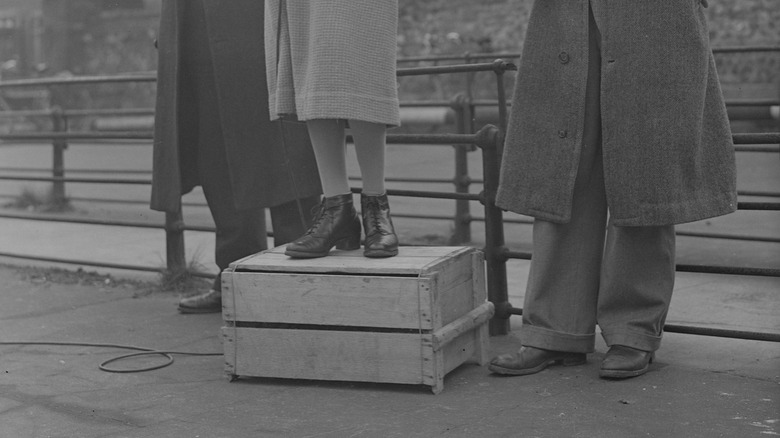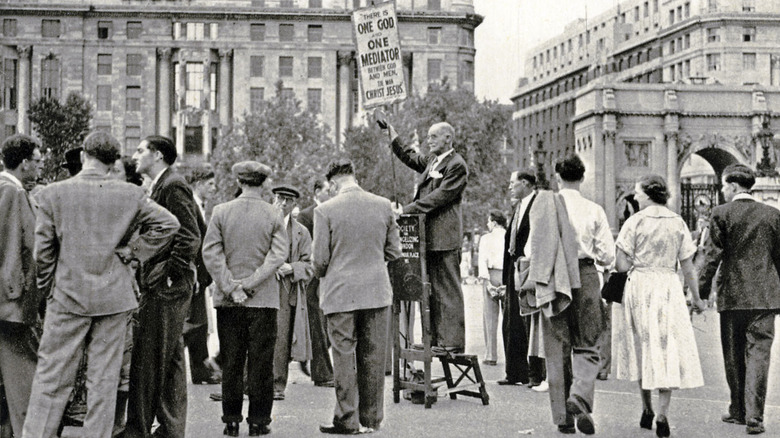The Origin Behind The Phrase 'Get On Your Soapbox'
If someone is said to "get on their soapbox" or even asked to "get off their soapbox," it's often said in an exasperated tone implying that someone is passionately, probably loudly, sharing their opinions with those who might not want to hear them. Per the blog Tina's World, the idiom comes from the actual practice of speakers elevating themselves to be heard better by literally standing on a box. As soap used to be shipped in portable wooden crates ideal for this very purpose, they became one of the more popular types of boxes used by public orators. As reported by Mental Floss, in the late 1800s those who needed a literal platform from which to proclaim political viewpoints, make speeches, or even offer up sales pitches became so associated with the soapboxes on which they actually stood that the very act of discussing one's views began to be described as figuratively "being on a soapbox".
One of the more popular arenas in which speeches were shouted from soapboxes is Speakers' Corner in Hyde Park, London, England. According to the Speakers' Corner website, the site is the oldest living free speech platform in the world. In 1872, the Royal Parks and Gardens Regulation Act declared that the northeast corner of Hyde Park to be held open for public speaking, a declaration thought to be formalized after the 1866 activities of the Reform League, which formed in protest after the Liberal government put forward a reform bill that the league believed offered to little to the public.
The ongoing influence of "soapboxing"
Per the Speakers' Corner website, on July 23, 1866, thousands of people arrived at a Reform League meeting in Hyde Park to find 1,700 police officers blocking their access. The crowd broke through the officers' ranks to meet, discuss, and debate political issues related to the controversial reform bill. This led to a discussion within Parliament regarding the right to practice free speech and assemble and is considered to be a major influence on the 1872 Regulation Act. To this day, people gather at Speakers' Corner in Hyde Park (shown above) to make speeches before the crowds assembled there or just passing through. Getting onto soapboxes is now entirely metaphorical, unless someone totes an antique soapbox to the park.
In his 2006 article "Mounting the Soapbox: Poetics, Rhetoric, and Laborlore at the Scene of Speaking," published in the journal Western Folklore and available via JSTOR, scholar Thomas U. Walker discusses the "radical significance" of what he calls "soapbox oratory" in the early 1900s United States, delivered on street corners or labor contexts such as factories, mines, piers, and public venues separate from more formal speeches "in the union hall and at political conventions." The image of getting on a soapbox and using speech to convince others to consider and even adopt your ideas is so powerful that it still exists and has been coopted into formal political contexts. During presidential elections, the Iowa State Fair hosts the Register Soapbox, sponsored by the Des Moines Register newspaper. Presidential candidates are given 20 minutes behind a microphone to explain and take questions on their policy positions from a live audience.

